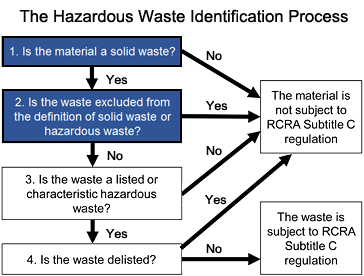Some Known Details About Reclaim Waste
Some Known Details About Reclaim Waste
Blog Article
See This Report about Reclaim Waste
Table of ContentsReclaim Waste Can Be Fun For AnyoneReclaim Waste - An OverviewThe Buzz on Reclaim WasteThe Basic Principles Of Reclaim Waste Unknown Facts About Reclaim Waste
Discover the kinds, incidents, and forms of liquid waste. Residential sewage waste refers to the waste and products from a domestic sewage-disposal tank. This sort of waste is produced by people in houses, colleges, and other structures. This only includes septic tanks that have a drain field. The proper monitoring and disposal of residential sewer waste call for fluid waste to be moved to a sewer treatment plant where the proper approaches and devices are related to detoxify and take care of waste.
Commercial waste usually includes potential hazards, such as combustible materials or a blend of fluid and solid waste products, and needs an advanced and in-depth disposal process. The disposal of industrial waste typically entails the filtration of waste prior to transport to make sure safe and correct disposal. Industrial waste is created from results and runoff of industrial procedures and manufacturing.
This kind of waste can not utilize the very same sewer monitoring transport or processes as septic or business fluids. The hazardous waste administration process needs the examination and screening of liquid waste before it undergoes the disposal procedure (industrial wastewater treatment). Runoff waste is the fluid waste that originates from drainage and excess stormwater in extremely populated locations or cities
Overflow waste can trigger contamination and flooding if not managed effectively. Discover more about sewage system cleaning and waste management. Making sure proper waste management can protect against calamities and minimize ecological damage. Both individuals in domestic setups and experts in industrial or manufacturing markets can gain from understanding the processes and policies of fluid waste monitoring.
All About Reclaim Waste
Get in touch with PROS Services today to discover our waste management and disposal services and the appropriate methods to look after the fluid waste you generate.
(https://www.mixcloud.com/reclaimwaste1/)This so-called 'wastewater' is not only an important resource yet, after treatment, will be launched to our land, waterways or the ocean. Made use of water from commodes, showers, baths, kitchen sinks, washings and commercial procedures is known as wastewater.

water used to cool equipment or tidy plant and tools). Stormwater, a type of wastewater, is runoff that streams from farming and city areas such as roofings, parks, gardens, roadways, paths and seamless gutters into stormwater drains pipes, after rain. Stormwater streams neglected straight to regional creeks or rivers, at some point getting to the sea.
The Main Principles Of Reclaim Waste
In Queensland, a lot of wastewater is treated at sewer therapy plants. Wastewater is moved from residential or industrial websites through a system of drains and pump terminals, known as sewage reticulation, to a sewage therapy plant. City governments build, maintain and operate most sewage treatment plants. Operators are certified under the Environmental Management Act 1994 to release cured wastewater at an appropriate ecological criterion right into waterways.
The Division of Natural Resources suggests city governments about managing, operating and keeping sewage systems and treatment plants. In unsewered areas, regional federal governments might require homeowners to mount specific or household sewage treatment systems to deal with residential wastewater from toilets, cooking areas, washrooms and washings. The Department of Natural Resources authorises making use of family systems when they are confirmed to be effective.
In some new subdivisions, treatment of some stormwater to remove litter, sand and gravel has begun utilizing gross contaminant catches. Wastewater treatment happens in 4 stages: Gets rid of strong matter.
Wastewater then streams into large containers where solids work out and are eliminated as sludge. Grease and residue are skimmed he said from the surface. Makes use of small living organisms knows as micro-organisms to break down and eliminate continuing to be liquified wastes and great particles. Micro-organisms and wastes are integrated in the sludge. Removes nitrogen and phosphorus nutrients that can cause algal blossoms in our waterways and threaten aquatic life.
Some Known Details About Reclaim Waste
Nutrient elimination is not readily available in all sewer treatment plants since it calls for expensive specialized devices. It is coming to be much more usual in Queensland. Clear fluid effluent generated after therapy may still have disease-causing micro-organisms. If this effluent is launched right into rivers such as rivers or the sea, the micro-organisms will ultimately pass away out.

Most wastewater moves into the sewage system. Under the Act, local federal governments administer authorizations and permits for environmentally appropriate tasks (ERAs) entailing wastewater launches that may have a local influence.
The Reclaim Waste PDFs
Monitoring gives factual information regarding water high quality and can validate that licence problems are being fulfilled. The details obtained with monitoring provides the basis for making water top quality decisions.
Report this page